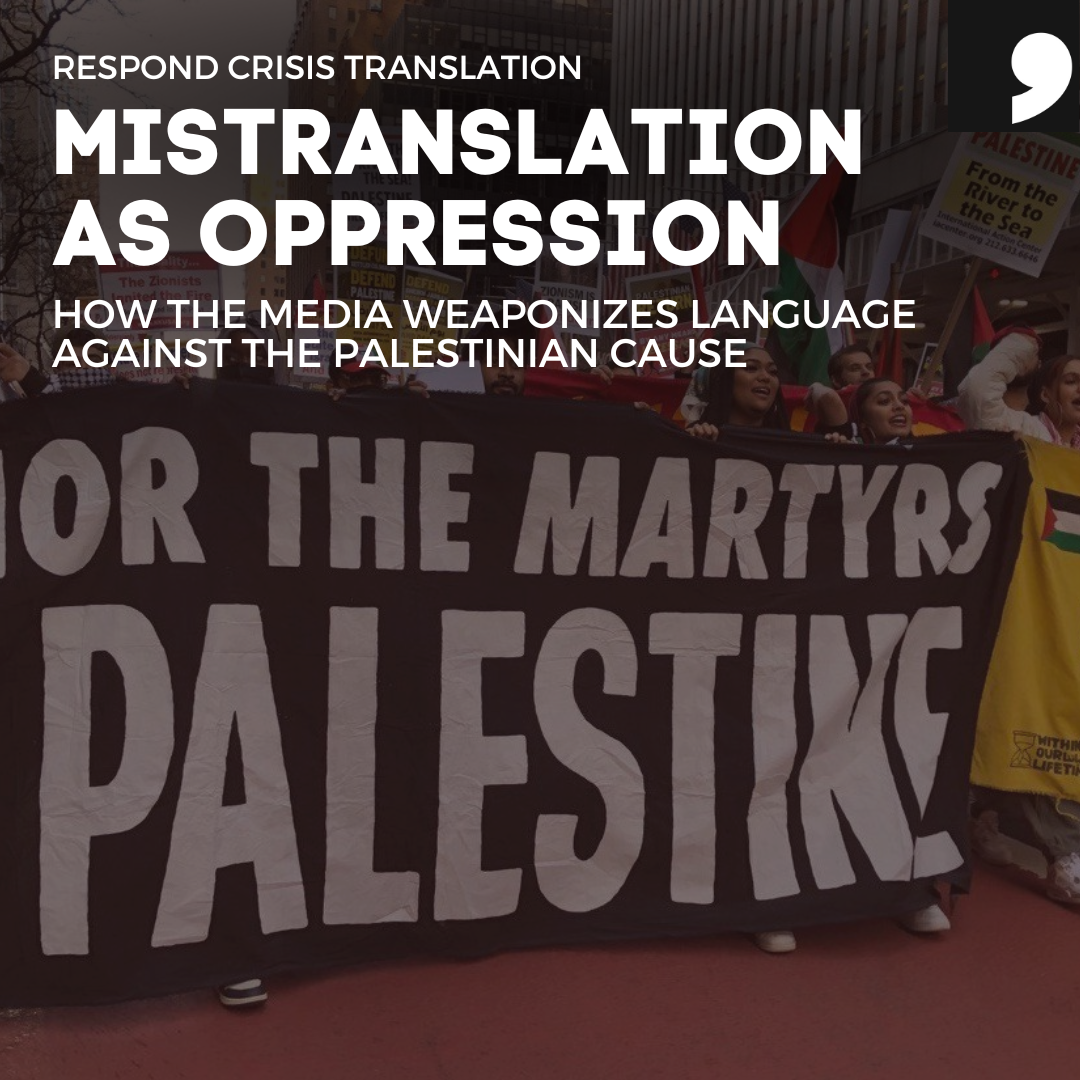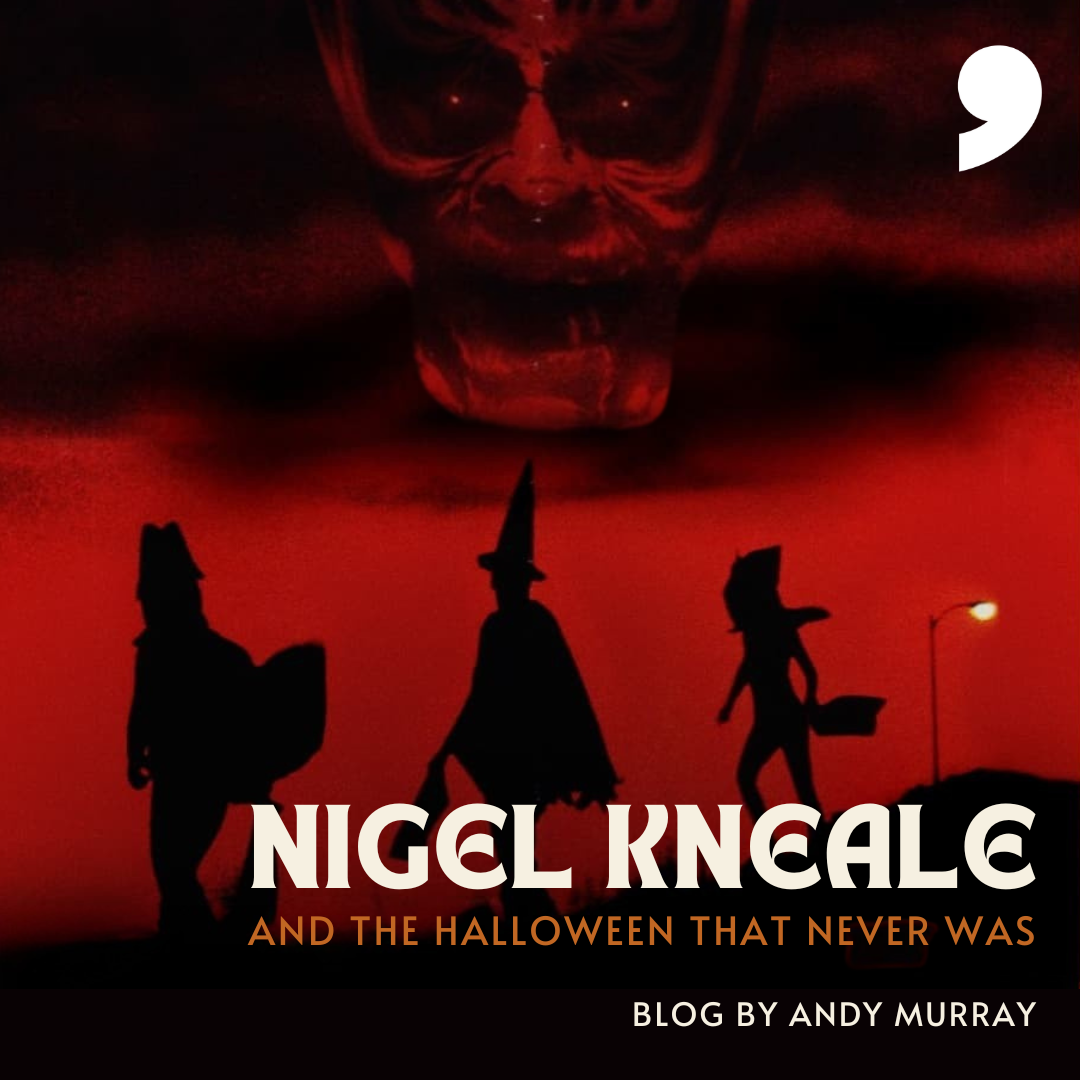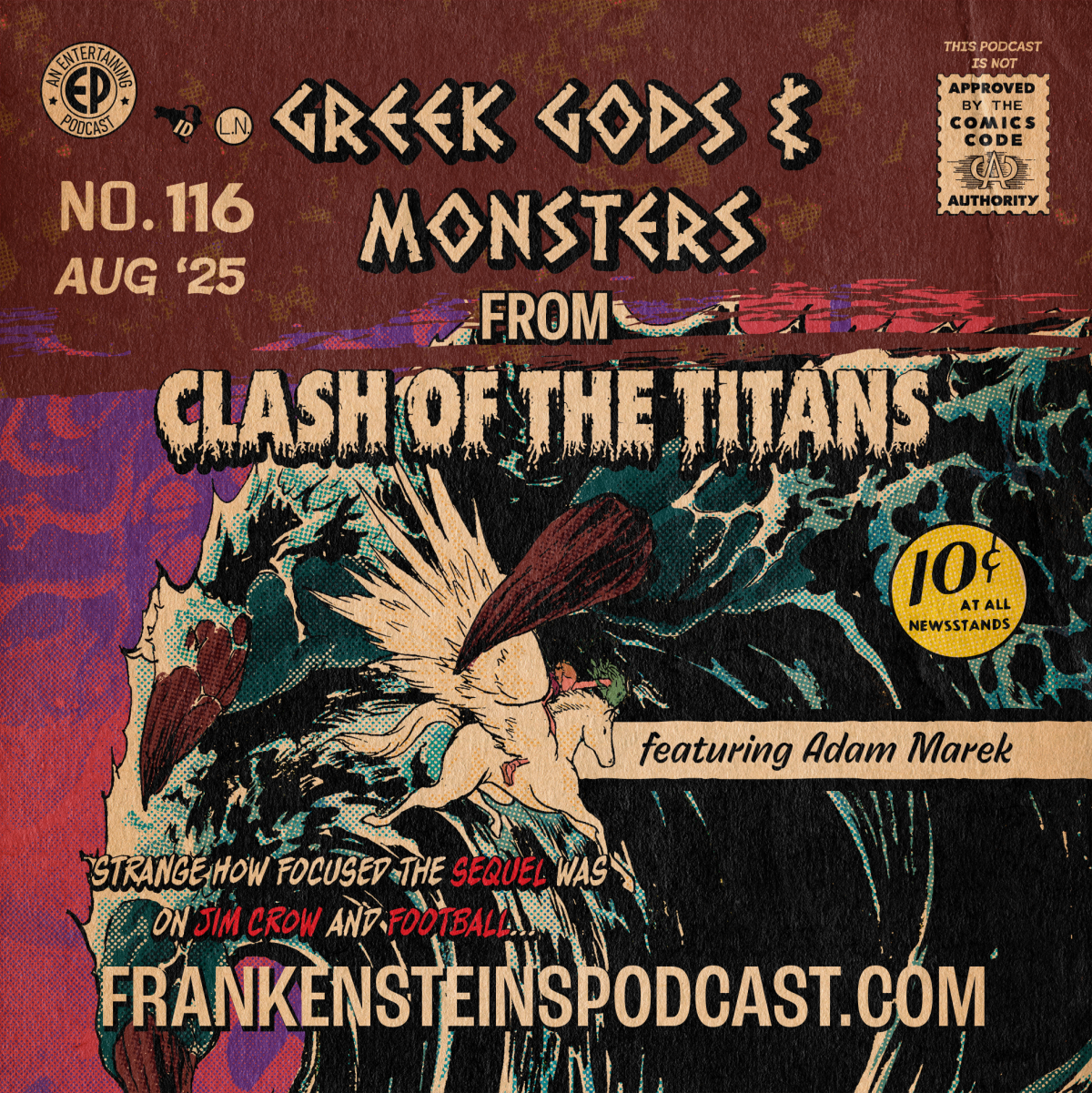Respond Crisis Translation: Mistranslation as Oppression
This blog article has been adapted with permission from work done by Respond Crisis Translation, specifically two blog posts linked below. Respond Crisis Translation is a coalition of language practitioners fighting to dismantle systemic language rights violations. They use translation skills to enable access to legal support, social services, healthcare, and all other human rights. Since the beginning of the escalation of Israel’s assault on Gaza, they have been dealing not only with a rapidly growing caseload coming out of the besieged territory, but the prevalent abuses of language in Western media. Please consider supporting their work if you are able.
BBC MISTRANSLATION RETRACTED AFTER PUBLIC OUTCRY
MISTRANSLATING THE PRO-PALESTINE MOVEMENT
In English-language media, Arabic words are regularly mistranslated, misconstrued, or outright fabricated to shape public perception of the ongoing catastrophe in Gaza. These mistranslations, whether through malice or ignorance, paint legitimate Palestinian resistance to Israeli aggression as inherently antisemitic, violent, and terroristic.
This weaponization of language is a desperate tool used to silence dissent across the west by making support of the Palestinian cause toxic in the public eye.
In recent weeks, terms like shaheed, jihad, and intifada – global rallying cries in Palestinian resistance and solidarity movements – are reduced to decades-old Islamophobic and racist anti-Arab motifs across both social media and supposedly objective news outlets.
But what do shaheed, jihad, and intifada really mean?
shaheed, شهيد
witness or martyr
Like the English word martyr, which comes from the Greek martur or witness, the root of shaheed derives from witness in Quranic Arabic. It often refers to someone who has willingly sacrificed their life for their faith or principles. In Islam, the term is used to honour and respect those who have fallen while fighting for their beliefs and values. The concept of Martyrdom in Islam is not by any means limited to violent demises, applying to a wide range of deaths that occur during the fulfilment of a religious commandment, for example childbirth.
In the Palestine context, shaheed regularly refers to a Palestinian or a supporter of the Palestinian cause who has been killed at the hands of military violence and occupation or while defending Palestinian rights.
“When an Anglo reads martyr, it isn’t just that [they] get the wrong associations. It isn’t just that [they] don’t understand the word’s much broader application in Arabic. It’s that a dense roadblock is thrown up between [them] and the whole text. Either the word causes [them] to giggle or flinch in terror, or both.”
“Do You Translate شهيد as Martyrs?”, Arablit
Social and traditional news media equating shaheed (martyr) with terrorist and stripping the term of its historical, political, and ethical context serves to demonize Palestinians and their supporters as terrorist sympathisers, opening them up to unwarranted abuse, as well as effectively banning legitimate expressions of mourning and solidarity in online spaces. An internal review of Meta’s content moderation policies earlier this year found the word shaheed accounted for more removals on the company’s platforms than any other term or phrase. As well as promoting a racist, hateful smear, the misappropriation of shaheed, therefore, restricts free speech.
Below are just a few media examples of this misappropriation in action to delegitimise solidarity movements in the West.
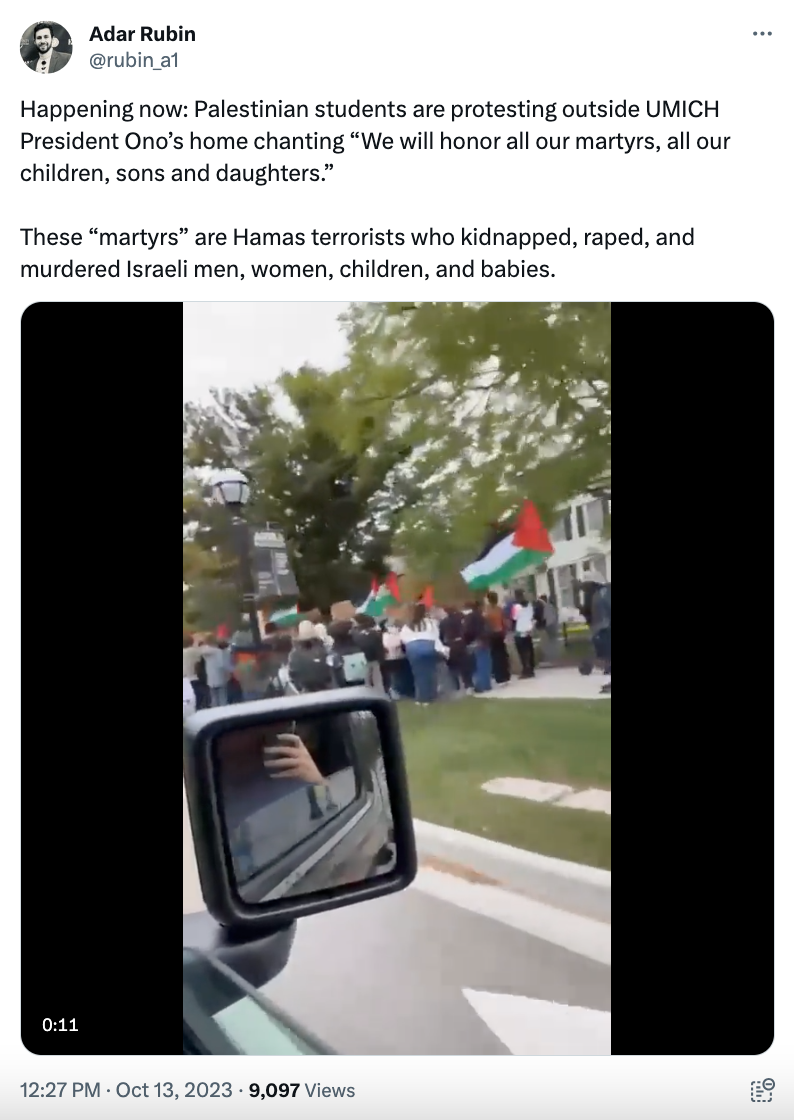
https://x.com/rubin_a1/status/1712913061567201375
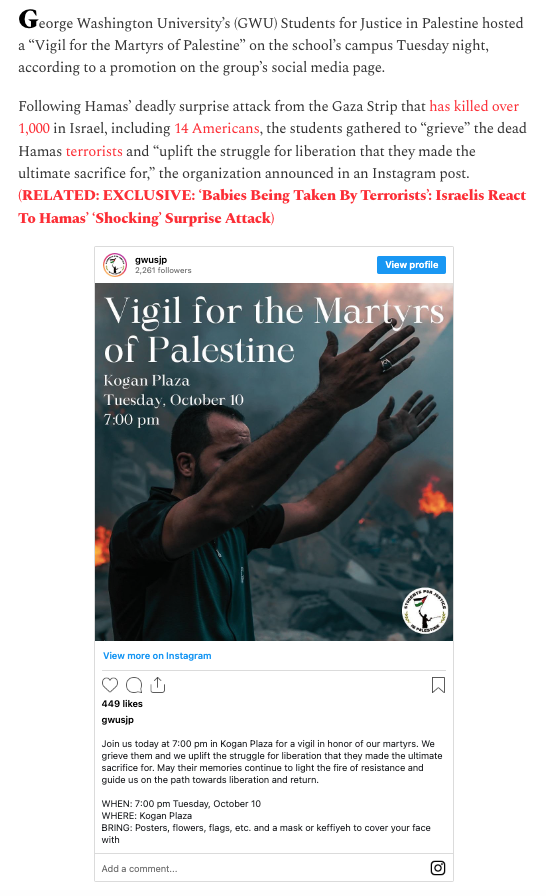
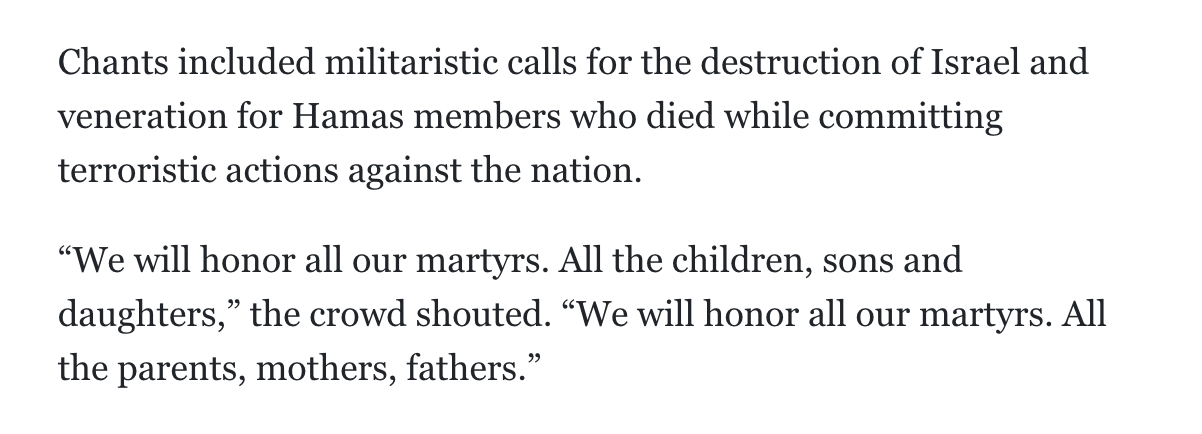
“Anti-Israel Rally Accuses Mayor of ‘Genocide’,” The Dallas Express, Oct. 20, 2023
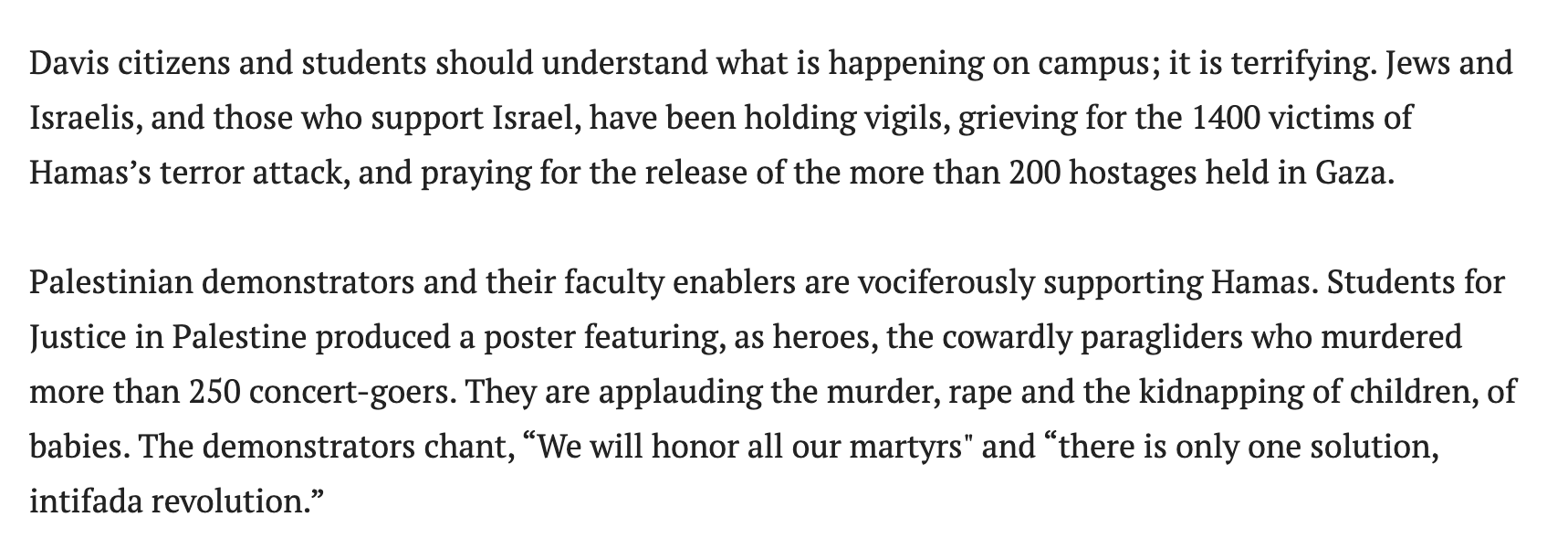
“Letter: Recognize true evil,” The Davis Enterprise, Oct. 23, 2023
jihad, جهاد
struggle
Jihad, derived from the Arabic verb jahada, means to strive or struggle. In Islamic terminology, it refers to an endeavour toward a noble cause. According to Islamic teachings, there are three main forms of jihad, all seeking to establish and promote peace in society.
Jihad-e-Akbar is Jihad of the highest order: the internal struggle against our lower selves and base impulses – in Freudian terms, how the superego keeps the id in check.
Jihad-e-Kabir is the major outward struggle to propagate truth and the message of the Qur’an. The Qur’an instructs followers to do so with wisdom, tolerance, and respect of other beliefs. The use of force or coercion is strictly forbidden.
Jihad-e-Ashgar is Jihad of the lower order – the defensive battle. This part is often labelled as ‘holy war’ in the West to provoke images of Isis in the minds of readers, however the Qur’an forbids offensive war, and has strict rules of defensive warfare regarding the protection in combat of innocents and important infrastructure like religious buildings and hospitals, among other humanitarian concerns. This form of jihad can be equated roughly to the Christian concept of ‘Just War.’
Jihad is “a meritorious struggle or effort. The exact meaning of the term [jihad] depends on context; it has often been erroneously translated in the West as ‘holy war.’ [Jihad], particularly in the religious and ethical realm, primarily refers to the human struggle to promote what is right and to prevent what is wrong.”
Jihad has, for a long time, been intentionally misconstrued as “Muslim violence,” an association which has only become more synonymous since the recent Israeli escalation, with the media falsely reporting that a Hamas leader called for a “Global Day of Jihad.” This was a lie, based on a mistranslation and misinterpretation of what was actually said. Nonetheless, this lie ignited Islamophobic imagination, fomented fear around the world, contributing to the rapid spread of disinformation fanning the flames of war.
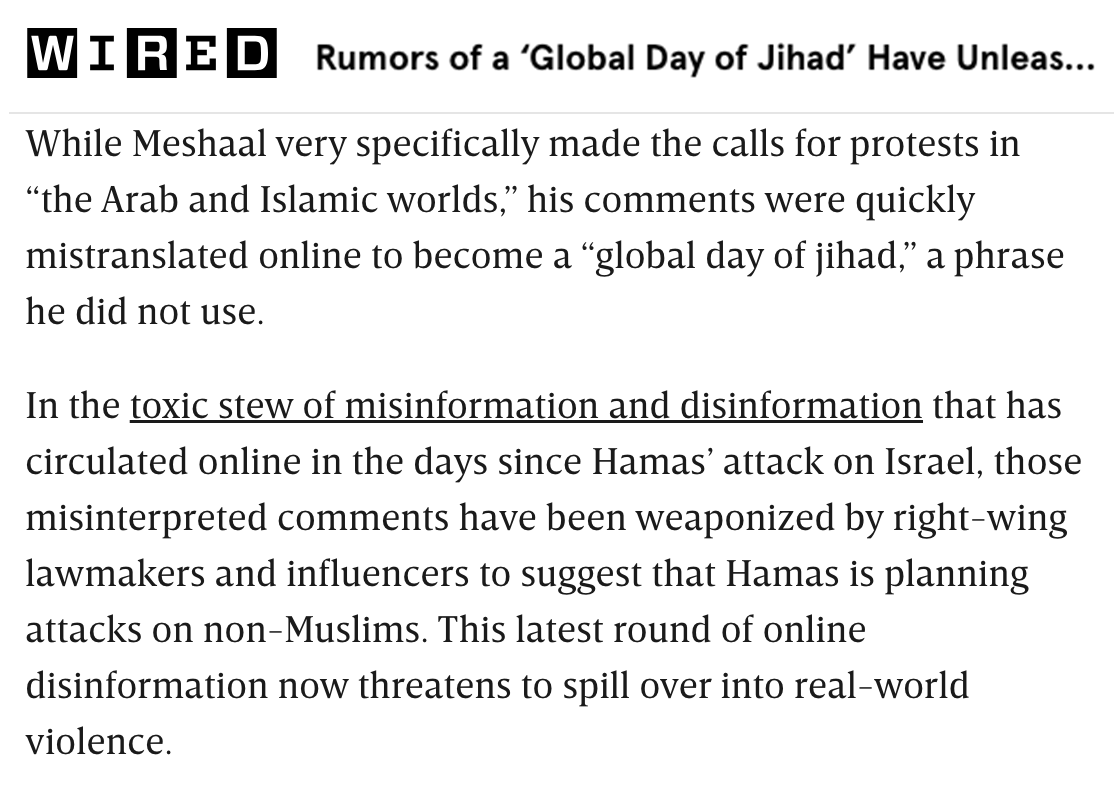
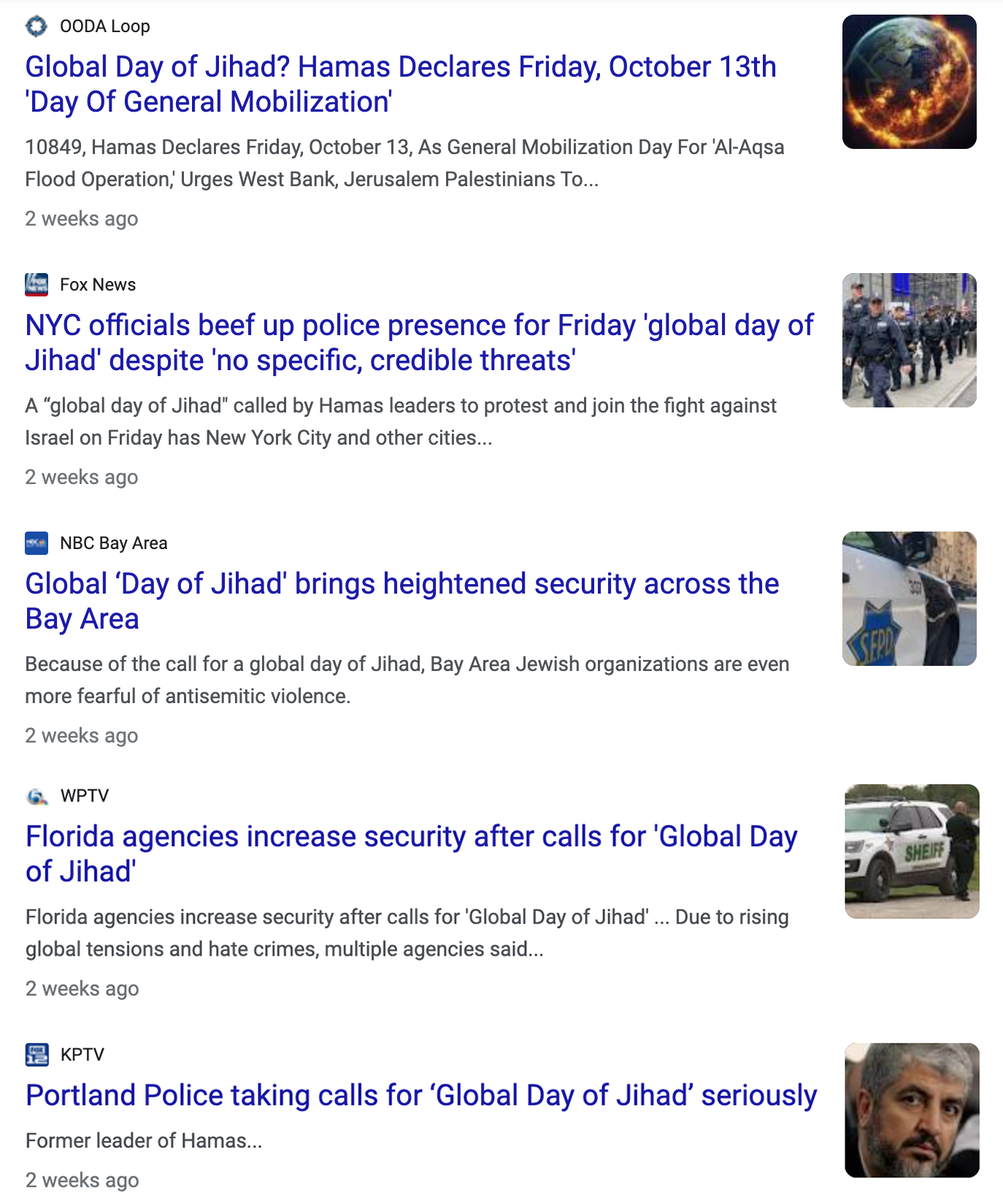
intifada, إنتفاضة
uprising or shaking off
Intifada “has a specific and exclusive reference point in the US media: It denotes both the First Intifada of 1987 to 1993, during which Palestinians en masse clashed with Israeli forces, typically with no more advanced weaponry than rocks to throw. Several years later, the term became a historical designator for Palestinian struggle again with the Second Intifada of 2000 to 2003. This was also a period of widespread uprising but became defined in the American imagination by suicide bombs and terrorist tactics. Intifada, then, became unmoored in Western-media lexicon from its sense as ‘uprising’ and instead occupied that peculiar anti-Muslim tendency to imbue Arabic words with a valence of terror… I urge that we think of intifada as an uprising – a rising-up of an oppressed people. It is, as Khalidi told me, ‘Like what the Irish did, and the Indians, and the South Africans did against apartheid.’ Intifada is not, as the historian noted, some ‘peculiar violent ritual’ reserved for Palestinians – it simply means ‘uprising,’ which is what oppressed Palestinians have no option but to do save for continuing to live under the yoke of … occupation.”
“Why Talk of Intifada? We Should Call It a Palestinian Uprising,” Vice News
The painting of legitimate Palestinian resistance to occupation, apartheid, and genocide as terroristic or genocidal itself is another tool to demonize and undermine the movement for liberation – and it has real consequences on people’s lives. In 2015, Palestinian poet Dareen Tartour was arrested and placed on house arrest after Israeli prosecutors alleged, among a number of charges, that she had expressed support for Palestinian intifada in a social media post.

“The Intifada Revolution at MIT,” Aish, Oct. 29, 2023
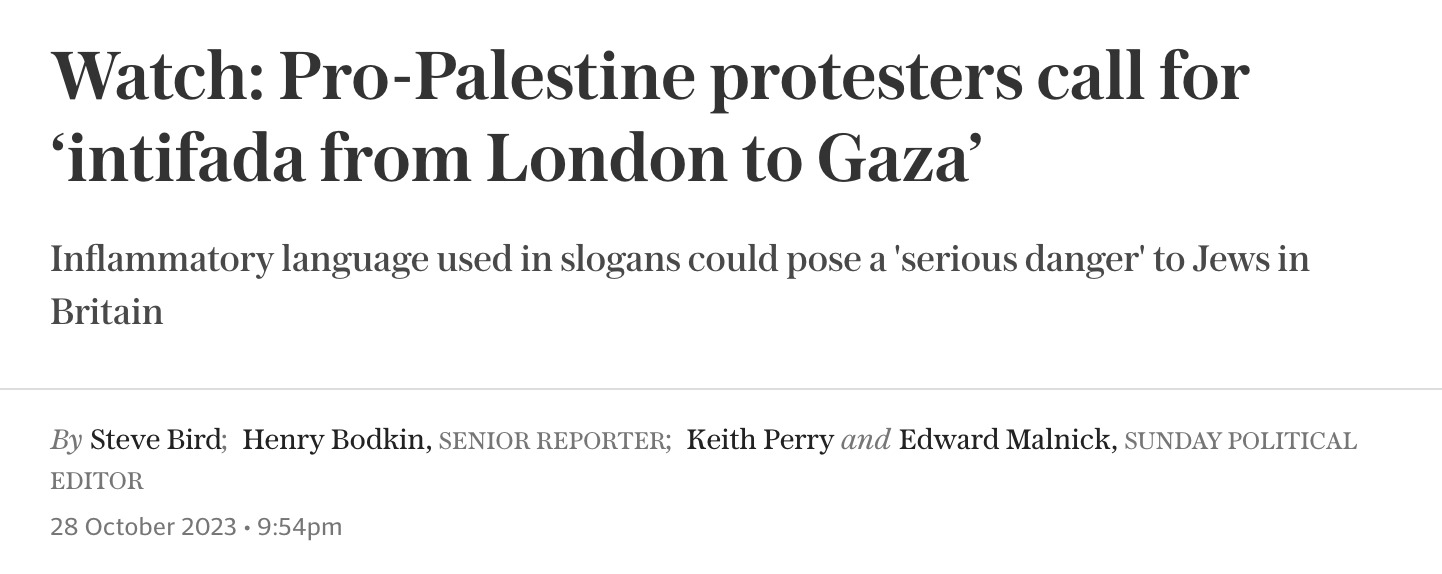
Mistranslation feels like an inadequate word for what is really taking place: the systematic and prevalent actions taken by media organisations, large and small, to demonize Palestinians and their advocates by decontextualizing, misappropriating and bending language to its breaking point.
The victims are, as usual, the people of Palestine. They will not be free to live their lives in peace until Israeli bombs stop falling. The bombs will not stop falling until Israel’s supporters in the West stop arming their military and providing cover for these crimes. Western governments will not reverse course until their citizens demand it, and their citizens will not demand it while, thanks to media bias, they associate the Palestinian movement with violent, antisemitic terror.
The manipulation of language is just one tactic used to bat down pro-Palestinian solidarity, but it is an effective one. How can we fight back? Help call out the weaponization of language against Palestinians by learning more about the terms of the movement - their historical and political nuances, and the legacy of their use in Palestinian resistance and solidarity. Knowledge truly is power, and advocacy works. Take this particularly heinous example from the BBC for example:
On 25 November, a clip posted by BBC News showed a released Palestinian prisoner describing horrific abuses inside an Israeli prison. She said, in Arabic, that Israel held them in the cold without electricity, "sprayed us with pepper spray" and “left us to die."

The BBC translated her testimony to: “No one helped us. Only Hamas cared... We love them very much." An outright fabrication, and one which substitutes real abuse at the hands of Israel for made-up adoration of Hamas. This lie was highlighted in a post by Respond Crisis Translation which quickly went viral, garnering over 12m views to date. Public outcry caused the BBC to take the clip down and repost a corrected version, offering the shameful excuse of a “mistake in the editing process.”
The more people learn about the language of this conflict, the harder it will be for the media to obfuscate. The Israeli onslaught may abate or pause, but Palestinians will not be truly free until an educated global community stands up as one for truth and justice. This must be a shared Jihad-e-Kabir.
Sources:
https://x.com/Iwastakinawalk/status/1718443911427866682?s=20
https://www.davisenterprise.com/forum/letter-recognize-true-evil/article_a3298058-71cb-11ee-9577-971cd806c180.html
https://dailycaller.com/2023/10/11/gwu-students-justice-martyrs-palestine-vigil-hamas/
https://x.com/rubin_a1/status/1712913061567201375
https://www.aljazeera.com/news/2023/3/9/meta-to-review-moderation-of-arabic-word
https://arablit.org/2012/02/17/do-you-translate-%D8%B4%D9%87%D8%AF%D8%A7%D8%A1-as-martyrs/
https://www.britannica.com/topic/jihad
https://www.wired.com/story/day-of-jihad-disinformation-israel-palestine/
https://x.com/zedonarrival/status/1717991269853524196?s=20
https://www.buzzfeednews.com/article/rosebuchanan/a-palestinian-poet-poem-israel
https://www.telegraph.co.uk/news/2023/10/28/palestine-protest-london-gaza-chant-israel/
https://aish.com/the-intifada-revolution-at-mit/
https://www.vice.com/en/article/kz5y9a/why-talk-of-intifada-we-should-call-it-a-palestinian-uprising
https://www.learningforjustice.org/magazine/publications/what-is-the-truth-about-american-muslims/misunderstood-terms-and-practices
https://www.alislam.org/question/what-does-jihad-mean/
